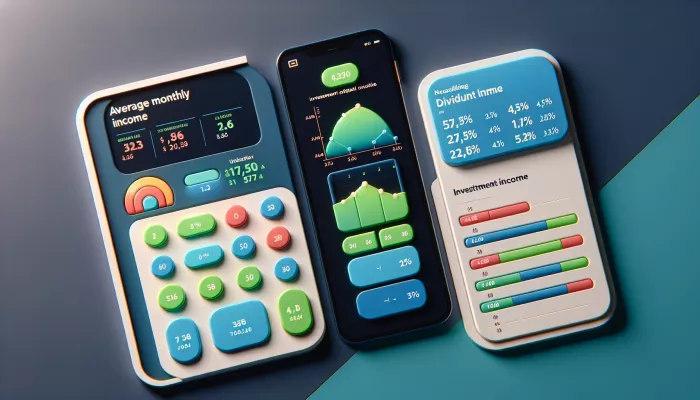
When we talk about inflation in your money, we are referring to the general and continuous increase in the prices of products and services in an economy.
That economic factor directly affects the purchasing power of money, leading to a decrease in its real value over time. This means with the same amount.
Inflation occurs for several reasons, such as an increase in demand for products without a corresponding increase in supply, government policies to increase taxes, among others.
One of the ways to measure inflation is through the Consumer Price Index (CPI), which tracks the cost of a basic basket of goods and services over time.

The most direct effect of inflation is the reduction in purchasing power. If wages do not increase at the same rate as prices, people will be able to buy less for the same amount of money.
This impacts not only the quality of life, but also the ability to save and invest.
Additionally, inflation can influence interest rates. Central banks around the world, including the Central Bank of Brazil, may raise interest rates to try to contain inflation.
This affects the cost of loans and financing, making them more expensive and discouraging consumption and investment.
To protect your savings against inflation, it is important to consider forms of investment that can offer returns above the rate of inflation.
This may include the investment diversification, betting on different types of assets that can appreciate above inflation over time.
Understanding the dynamics of inflation and its effects on your money is the first step to better planning your finances and protecting your purchasing power in the long term.
Inflation it can quickly erode the value of your money, causing your purchasing power to decrease over time.
However, allocating your resources intelligently across strategic investments it can not only protect, but potentially increase your wealth even in periods of high inflation.
Below, we explore some approaches to making investing a powerful ally against inflation.
Portfolio diversification is essential to mitigate risk and seek inflation-adjusted returns.
Invest in different asset classes, such as stocks, real estate, and inflation-linked bonds.
Above all, it ensures that you are not overly exposed to any specific sector that could be adversely affected by inflation.
Commodities such as gold, oil, and precious metals often serve as a hedge against inflation.
These assets tend to increase in value when inflation rises, providing a counterbalance to other parts of your portfolio that may be negatively impacted.
An environment of high inflation requires constant vigilance. Reevaluating your portfolio periodically allows you to adjust your investment strategy as needed.
Therefore, ensuring you remain aligned with your financial goals and suited to the current economic climate.
Investing during periods of high inflation can be complex and sometimes counterintuitive.
Seeking advice from financial experts can provide the guidance you need to navigate these challenges and identify strategic investment opportunities to protect your wealth.
Finally, invest strategically It is essential to combat the corrosive effects of inflation on your money.
By diversifying your investments, focusing on inflation-resilient assets, and constantly re-evaluating your approach,
Most importantly, you can position yourself to not only preserve but also increase your earning power over time.
Beating inflation is a challenge for many investors. Here are some practical tips to help you choose the best investments and protect your purchasing power over time.
First of all, it is crucial understand your investor profile. This includes assessing your risk appetite, financial objectives and investment horizon.
Investments with the potential to beat inflation, such as stocks and real estate funds, generally exhibit greater volatility.
Knowing your profile helps you make decisions that are more in line with your expectations and risk tolerance.
Diversify It is essential to mitigate risks and seek consistent long-term returns.
Certainly, including different types of assets such as fixed income, stocks, commodities, foreign currencies and even cryptocurrencies can help protect your portfolio against inflation.
Remember that diversification varies considerably depending on your investment profile and objectives.
Real assets such as properties It is commodities, tend to appreciate in value along with inflation.
Investing in Real Estate Funds (FIIs) or through ETFs (Exchange Traded Funds) that track the price of commodities are ways of including these assets in your portfolio without the need to physically own these assets.
For those who prefer the security of fixed income, inflation-indexed bonds, such as IPCA+ Treasury Bonds, can be an excellent alternative.
Mainly, they offer a real return above inflation, ensuring that your purchasing power is preserved.
When choosing your investments, it is essential to consider the administrative fees and taxes incidents.
Ultimately, high costs can significantly erode your returns, especially in a high inflation scenario.
Choose investments with competitive rates that fit well with your strategy.
The economic scenario is always changing, and just like inflation, markets are dynamic.
However, review and adjust your investment portfolio periodically to ensure it remains aligned with your financial goals and reacts appropriately to current market conditions.
Well, remembering that financial education is a fundamental component in the investor’s journey.
Therefore, use educational resources available on investment platforms and specialized websites to improve your knowledge and make more informed decisions.